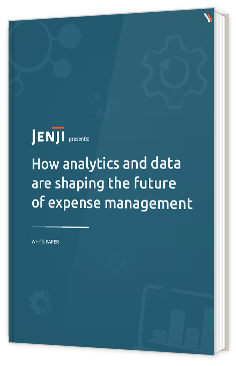

In the last decade, companies faced the importance of introducing sustainability in business spending, looking into business expenses in particular.

"With the 2008 financial crisis and the subsequent recession, businesses had no choice but to take an in-depth look at how they could streamline their finances. Investments started to be directed towards new technologies and in particular Artificial Intelligence (AI).
For most companies, the short-term goal at the time was simply to get their head above water. But the large-scale investments accelerated research and breakthroughs, and more and more AI-based technologies made their way through corporate and mass use.
The rise of the GAFAs accelerated the trend as they invested massively in AI entrepreneurial firms. From the 2010s, as companies were still recovering from the global financial plunge, AI started to be seen as a vital toolbox to gain more business resilience. Blockchain, Big Data, Cloud Computing, Machine Learning, Deep Learning and Automation are technologies that both emerged from AI and reinforced AI development.
High-demand for enhanced expense management meant these new tools were integrated in finance management with SaaS and then multiplatform solutions. Businesses that had not yet started the digitalisation journey for their business expenses realise their mistake with yet another global crisis in 2020, COVID-19.
Business activity was shutting down all over the world and the only way to maintain work and revenue was through new technologies and streamlined expenses.
CFOs found themselves in need for more agility, more instant feedback and reporting, more cost-effective management. Data was the answer to most of these challenges.
Or rather a smarter and more efficient use of expense data was the key answer. If data technologies were already a strong player in the market before the COVID-19 crisis, they expanded at a frantic pace in 2020 and even more so in 2021, reaching large companies as well as small businesses.
With digitalisation, real-time expense management, automation and machine learning, CFOs were able to launch financial restructuring and optimise their expenses as the crisis was disrupting business at all levels.
Now, with expense data available “as-the-expense-is-occurring”, the next step is reaching faster and sharper analysis of expenses, enhancing financial capacities and resilience in the long-term. This is where analytics are proving to be immensely useful especially with visualisation and contextualisation now being integrated in data-driven expense management tools."